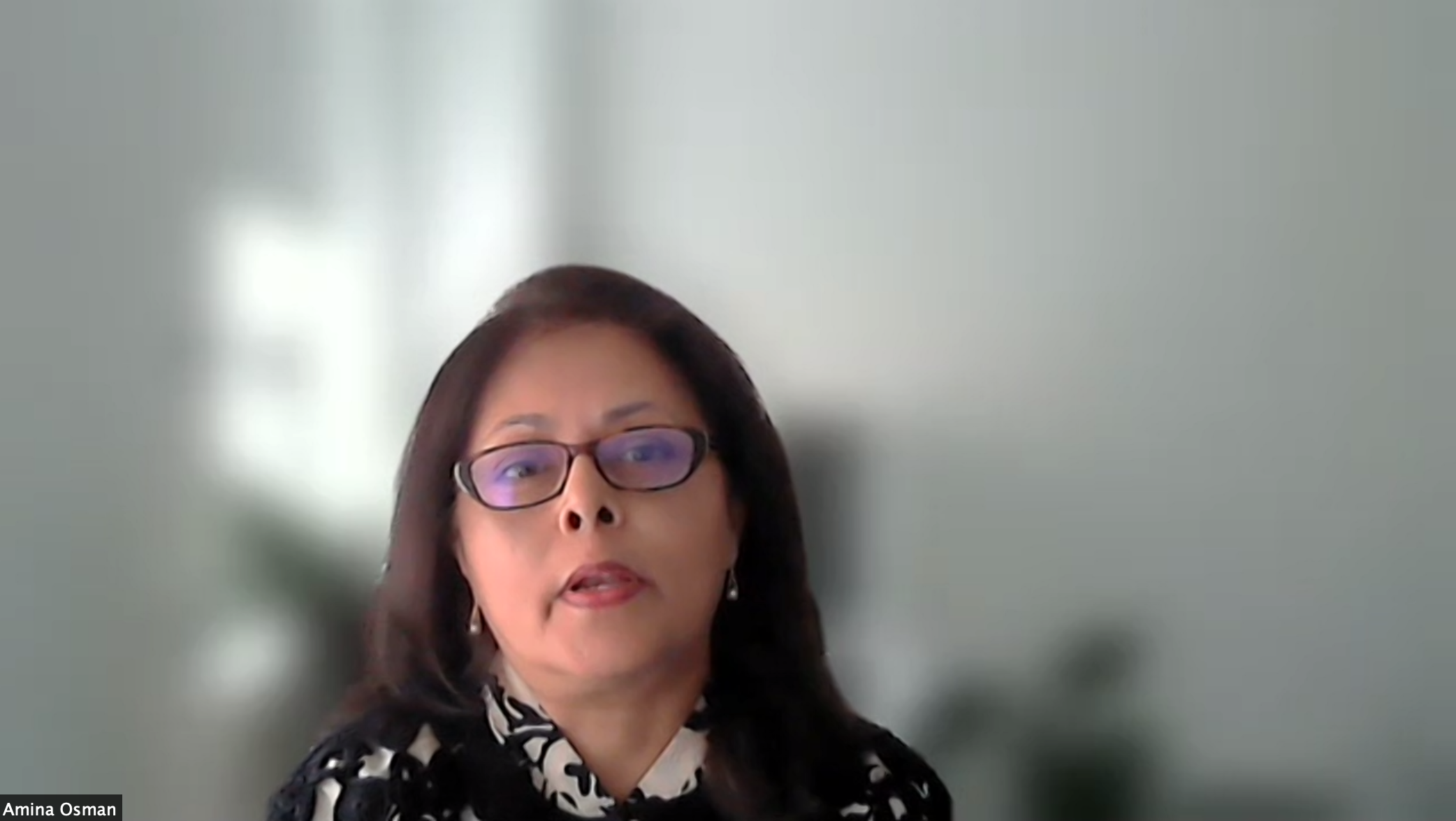IPNEd partners with Commonwealth organisations in support of education financing
On 29 April, IPNEd joined forces with the Commonwealth Parliamentary Association (CPA) and Commonwealth education organisations for a discussion on the role of the Commonwealth in advancing the sustainable financing of education.
At the webinar, moderated by CPA Secretary-General Stephen Twigg, representatives from parliament, government, civil society, academia and the Commonwealth Secretariat, shared their vision for the Commonwealth as a leading platform to support education financing. The webinar, which was also co-hosted by the Council for Education in the Commonwealth and the Commonwealth Consortium for Education, took place ahead of the upcoming 26th Commonwealth Heads of Government Meeting (CHOGM) due to take place in Kigali in June 2021.
Opening the event, MNA Mehnaz Akber Aziz, IPNEd Regional Representative for Asia and a member of the National Assembly of Pakistan, set out the scale of the crisis facing education budgets across the Commonwealth:
“Here in Pakistan, like in so many other Commonwealth countries, we are facing an education financing crisis, whilst also battling a devastating third wave of the pandemic. The economic consequences of the pandemic have already led to many provinces redirecting funding away from their education budgets. But even before the pandemic education was chronically underfunded. The share of the government budget going to education had been stagnant for many years at only 2% of GDP.”
Globally two-thirds of low- and lower-middle-income countries have cut their public education budgets since the onset of the COVID-19 pandemic. Prior to the pandemic one in four countries were failing to meet the international benchmarks of allocating at least 4% to 6% of GDP or 15% to 20% of total public expenditure to education.
Echoing Ms Aziz’s concerns, Pauline Rose, Professor of International Education at the University of Cambridge, focused her remarks on the impact of cuts in the UK aid budget to education and its implications for the UK’s leadership on girls’ education.
Sharing analysis that she had published with Susannah Hares for the Center for Global Development, Professor Rose outlined that the UK is disproportionately cutting aid to education by more than 40 per cent, compared with overall aid cuts of around 25 per cent:
“With the pandemic disproportionately hitting the budgets of the poorest countries, now is not time to cut global funding for them. I hope that this will be a key message at CHOGM”.
Ruth Kagia, Deputy Chief of Staff in the Office of the President of Kenya, also called on Commonwealth governments to maintain their commitment to ensuring that every child receives a quality education:
“I would welcome the Commonwealth to join hands with Kenya to support the Global Partnership for Education (GPE). GPE is really critical in ensuring the tremendous progress that Kenya and other countries have gained over the past two decades is not lost. The focus of GPE’s replenishment this year is to support countries to regain the momentum that has been threatened by COVID-19 and to also rebuild education systems”.
The governments of Kenya and the UK will co-host the Global Partnership for Education’s financing summit in London in July. The summit aims to raise at least US$5 billion to transform education systems in up to 90 countries, where 80% of the world’s out-of-school children live.
All speakers were united in their vision of the Commonwealth in advancing resilient and gender-transformative education financing.
“We are already experiencing widespread budget cuts that are going to affect education in particular for the most marginalised populations. What we have seen with previous global economic recessions is that budget cuts widen inequalities”, said Wongani Grace Taulo, Senior Adviser at UNICEF.
“In addition, we have a looming climate crisis, the climate crisis exacerbates challenges in lower and lower-middle-income countries. This requires increased investments to build resilient education systems that can mitigate the risks of climate change”.
Among the Commonwealth’s 54 member countries - of which almost half are Small Island Developing States - are some of the world’s most vulnerable nations to climate change.
The final speaker, Amina Osman, Education Advisor at the Commonwealth Secretariat, outlined how the Commonwealth had been exploring the potential of innovative financing mechanisms to improve efficiency and effectiveness in education systems:
“If we are to build forward better we need to be thinking of innovative funding mechanisms that have the potential to positively impact learning outcomes and dismantle structural barriers to equal access to education”.
Throughout the webinar there were powerful reflections on the importance of political leadership in delivering twelve years of quality education for every child in the Commonwealth:
“We will only see the transformation required if global and national leaders across the political spectrum continue to come together to ensure the necessary resources are available to support a transformative approach to girls’ education”, said Professor Rose.
MNA Mehnaz Akber Aziz concluded her remarks with a call to action to the Commonwealth:
“By investing now in education we can prevent the worst education outcomes, mitigate the additional pressure on the education financing gap and get progress towards SDG4 back on track. But that is going to take bold action and political leadership which we need to see from the Commonwealth”.
Ms Aziz also outlined the critical role parliamentarians can play in protecting and growing financing for education alongside making the case to their governments for education to be on the agenda of CHOGM.
IPNEd is continuing to work with parliamentarians around the world to build political support for more and better funding for education. For more information about the Network’s work on education financing, please visit www.ipned.org/ipned-campaigns or email info@ipned.org.







